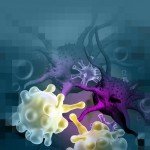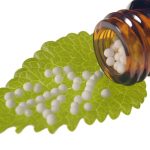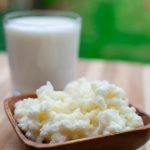Reversing Alcohol Induced Brain Deficits
Node Smith, ND
New Drug Claims to Reverse Damage to Brain Caused by Alcohol Consumption
A study was recently published in Scientific Reports1, that claims development of a new drug that reverses the damage to the brain caused by heavy alcohol consumption. The research was conducted at Queensland University of Technology (QUT). The new drug may be able to “reboot” the brain as well as enhance the regeneration of neurons.
Tandospirone
The preliminary studies have been in mice. These studies show that 2 weeks of daily administration of the drug reversed the effects of a 15-week alcohol binge. The drug’s name is tandospirone, and was seen to specifically reverse the effects of alcohol on neurogenesis.
Tandospirone has never been seen to reverse these neurogenic deficits induced by alcohol. Tandospirone has a selectivity for serotonin receptor (5-HT1A). This may account for the drug’s positive effect on anxiety-like behaviors arising from alcohol withdrawal. During the research it was noted that the drug also significantly decreased binge-like intake of alcohol.
Novel Discovery That Tandospirone Reverses Neurogenesis Deficit
The authors of the study say, “[t]his is a novel discovery that tandospirone can reverse the deficit in neurogenesis caused by alcohol.” This gives hope to other substance-abuse deficits, such as learning and memory. These aspects will be researched in the future as well.
Drug Only Available in China and Japan
Currently, the drug is only available in China and Japan, due to it being relatively new. In these countries it is used for treating generalized anxiety disorder. It is very effective for this condition, and is well tolerated with limited adverse effects, according to the researchers.
Researchers Excited about the Following Discovery
The exciting thing about the use of this drug in the context of alcohol-abuse is that it “isn’t just another drug that shows promise in helping to reduce binge drinking,” say the researchers, but could potentially be able to account for some of the mental health issues that arise from alcohol withdrawal as well as the brain damage from consistent and prolonged heavy alcohol use.
Source:
- Belmer A, Patkar OL, Lanoue V, Bartlett SE. 5-HT1A receptor-dependent modulation of emotional and neurogenic deficits elicited by prolonged consumption of alcohol. Sci Rep. 2018;8(1):2099.
Image Copyright: <a href=’https://www.123rf.com/profile_lekcej’>lekcej / 123RF Stock Photo</a>
 Node Smith, ND, is a naturopathic physician in Portland, OR and associate editor for NDNR. He has been instrumental in maintaining a firm connection to the philosophy and heritage of naturopathic medicine among the next generation of docs. He helped found the first multi-generational experiential retreat, which brings elders, alumni, and students together for a weekend camp-out where naturopathic medicine and medical philosophy are experienced in nature. Four years ago he helped found the non-profit, Association for Naturopathic ReVitalization (ANR), for which he serves as the board chairman. ANR has a mission to inspire health practitioners to embody the naturopathic principles through experiential education. Node also has a firm belief that the next era of naturopathic medicine will see a resurgence of in-patient facilities which use fasting, earthing, hydrotherapy and homeopathy to bring people back from chronic diseases of modern living; he is involved in numerous conversations and projects to bring about this vision.
Node Smith, ND, is a naturopathic physician in Portland, OR and associate editor for NDNR. He has been instrumental in maintaining a firm connection to the philosophy and heritage of naturopathic medicine among the next generation of docs. He helped found the first multi-generational experiential retreat, which brings elders, alumni, and students together for a weekend camp-out where naturopathic medicine and medical philosophy are experienced in nature. Four years ago he helped found the non-profit, Association for Naturopathic ReVitalization (ANR), for which he serves as the board chairman. ANR has a mission to inspire health practitioners to embody the naturopathic principles through experiential education. Node also has a firm belief that the next era of naturopathic medicine will see a resurgence of in-patient facilities which use fasting, earthing, hydrotherapy and homeopathy to bring people back from chronic diseases of modern living; he is involved in numerous conversations and projects to bring about this vision.










